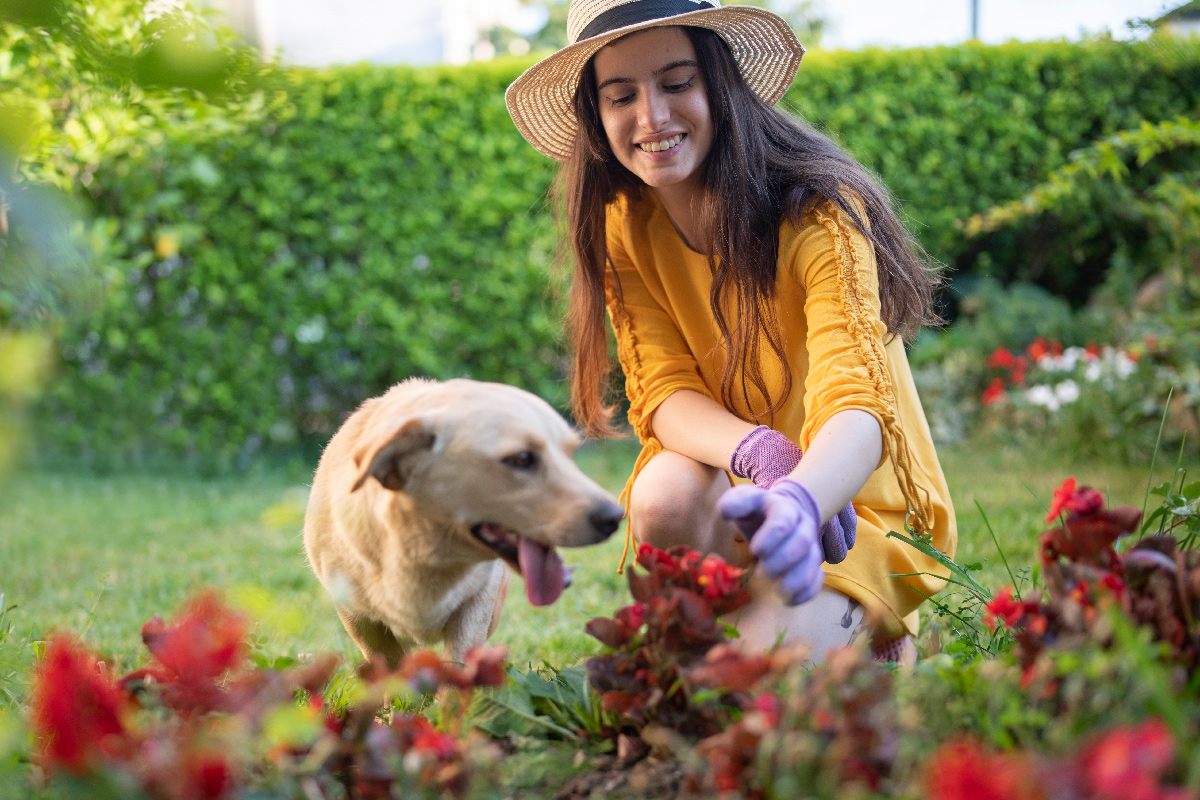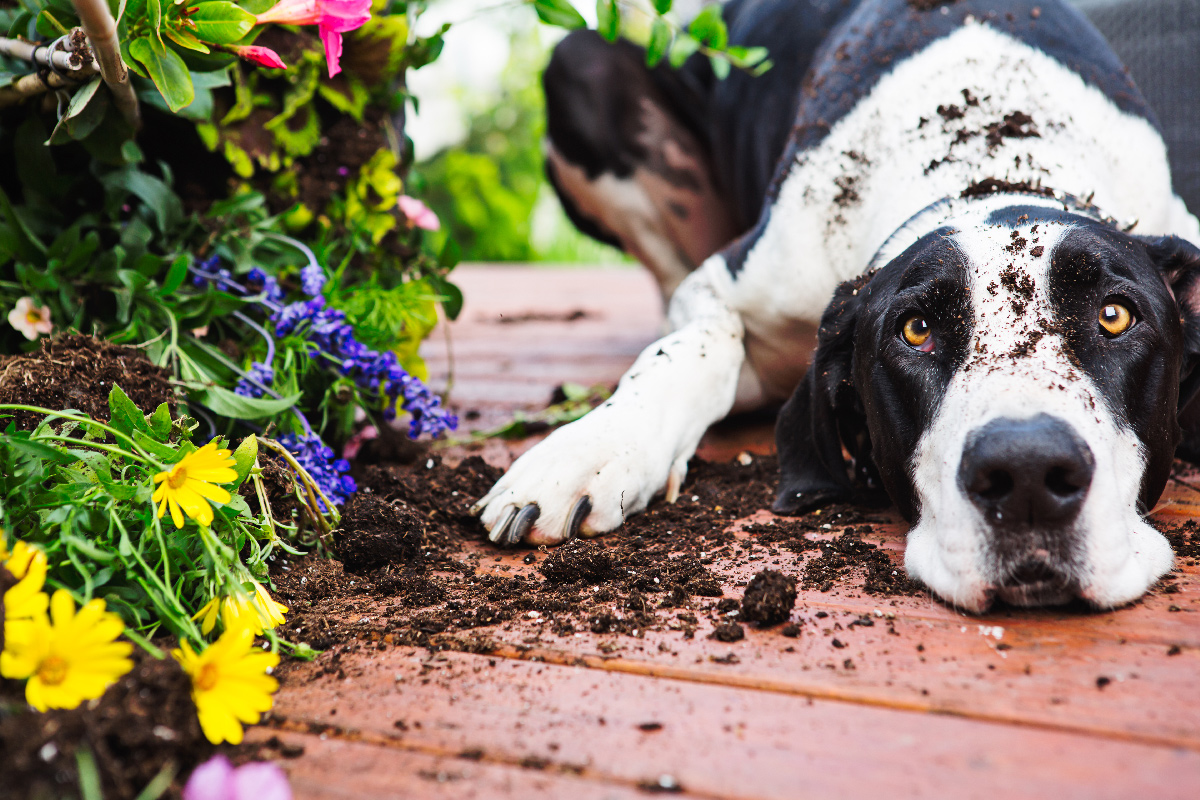Spring has arrived, which means it’s time to get back outside and spruce up those garden beds and lawns. Time in the garden can be a wonderful hobby, but it’s very important to be mindful of the types of plants you are using when your four-legged friends are also out enjoying the spring air. Many plants, plant foods and fertilizers can be toxic to your pets. Ask yourself these questions when planning your garden so you both can enjoy it all season long.

How do I know what is safe for my pet?
It’s always a good idea to do a little research first before heading out to the garden shops. You can search online for ideas and help to find what may work best in your garden. For starters, here are a few common outdoor plants that can be highly toxic for dogs and cats.
| Tulps Daffodils Peace or Calla Lillies Philodendron Azaleas |
Oleander Lily of the Valley Crocus Cyclamen Sago Palm |
How can I keep my pet out of the garden?
Certain plants can safely deter pets from wanting to enter a garden area. Herbs with a distinct smell like sage and rosemary will keep cats away (and mosquitoes, too!) Sprinkling spicy mustard or red pepper flakes throughout your garden will keep dogs out, as well as other outdoor animals and bugs that might be eating your plants. Scattering coffee grounds is also an easy way to keep pets out.
As they say, “Good fences make good neighbors,” and they can also make healthy, happy pets. Installing a sturdy fence around your garden can help prevent your pet from encountering any potential hazard. The size of your pet will determine the size of your fence, making sure it’s not something they can easily climb.
What about fertilizers and other gardening chemicals?
Organic options, like compost or manure, are better alternatives to chemical fertilizers. They are safer for you and your pets and will help your garden flourish as well.
If you do use chemical fertilizers, remember to safely store them out of reach of your pets. Remember, if you think your pet has ingested a toxic plant or other dangerous gardening material, contact your veterinarian immediately.




